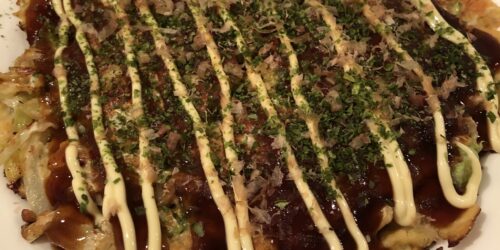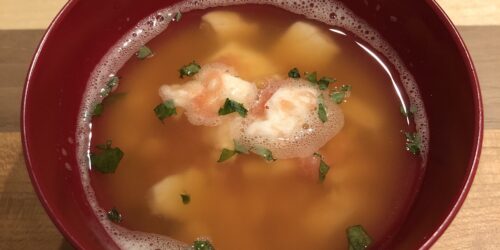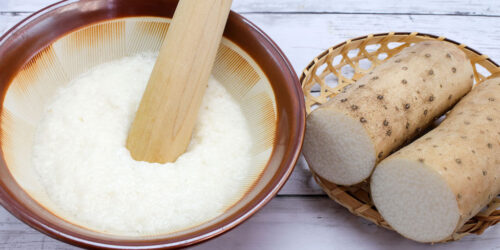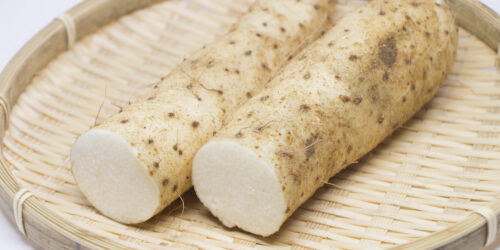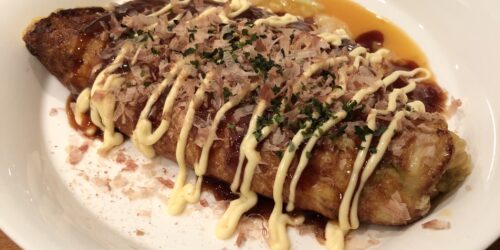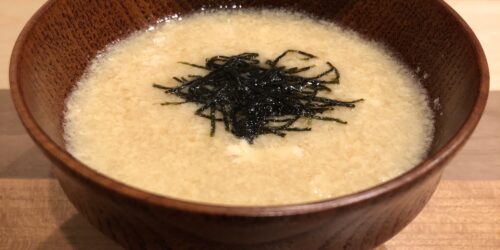Are Japanese Yams the Same As Chinese Yam?
What Is Japanese Yam (Yama-imo)?
Japanese yam is the name of edible potato (Dioscorea japonica) that grows naturally in mountains. This potato can be eaten raw, and is characterized by a sticky texture.
Please check this page for details.
What Is Japanese Yam and How Is It Used?
Although Japanese yam and Chinese yam are both called yama-imo in Japanese, strictly speaking, they are different types of yams.
Here, let’s look at the characteristics of Japanese yam and Chinese yam item by item.
Japanese Yam
Place of origin
Japanese yam generally refers to the yam native to Japan.
Types and Producing area
Jinenjo
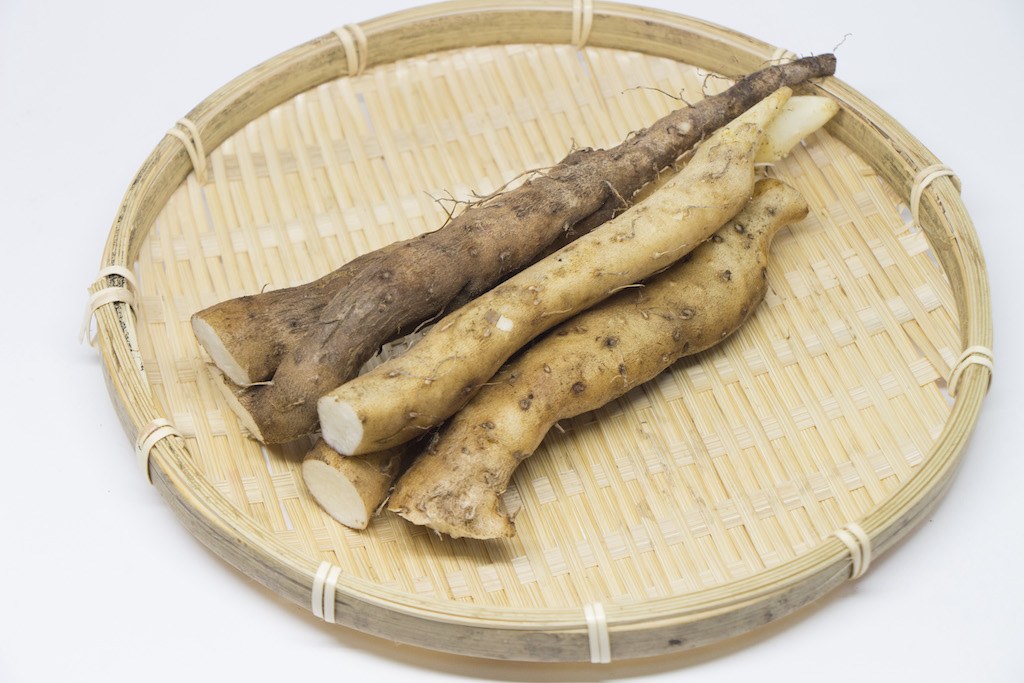
Jinenjo is a long, narrow strip of yam. It’s said that jinenjo grows naturally in mountains all over the country.
It’s rare to find, so could be very expensive.
Icho-imo
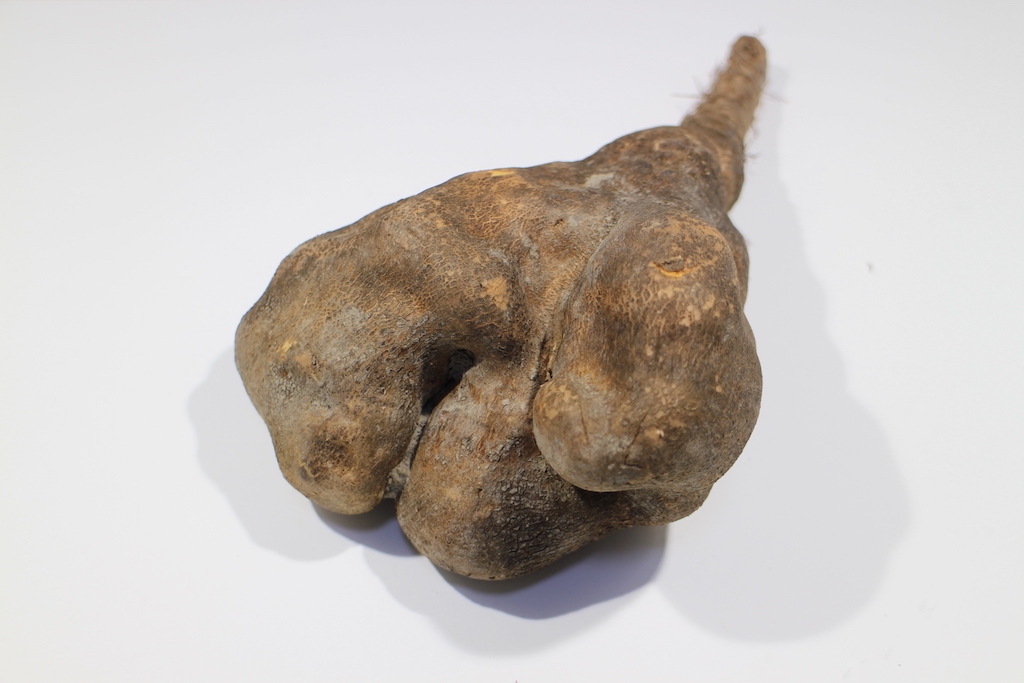
Icho means ginkgo, and the tip of the root looks like ginkgo leaves (flat and spread shape). Main production areas are Gumma, Saitam, and Chiba prefecture.
Tsukune-imo
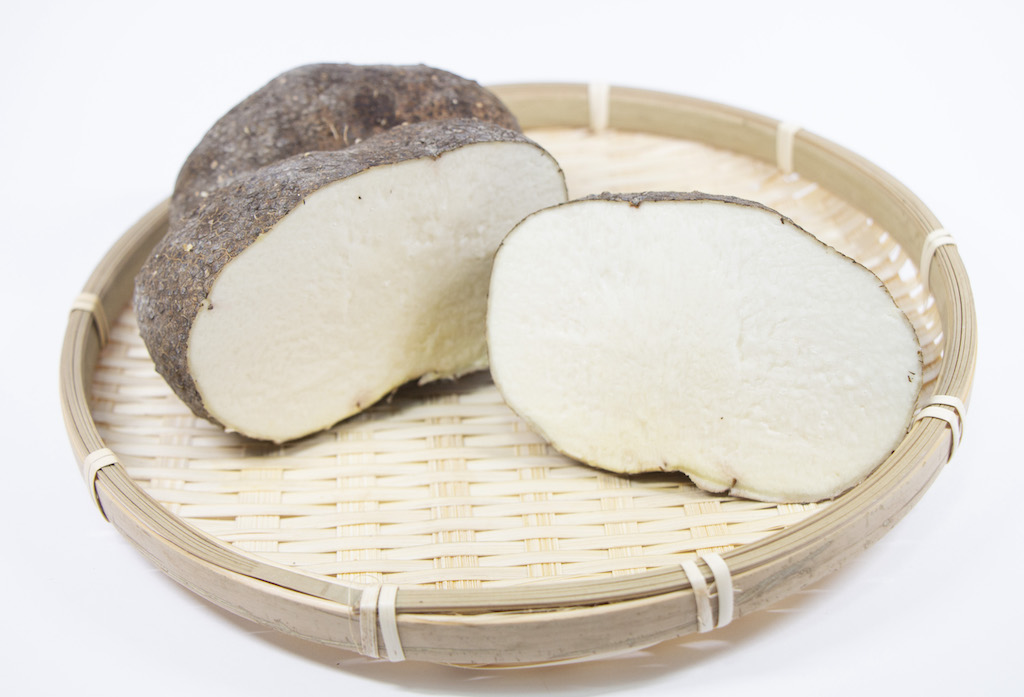
This is categorized in massive yam type, and has rugged shape. Main production areas are Mie and Nara prefecture.
Stickiness
All of the above three have much stronger stickiness than Chinese yam.
Taste
Generally speaking, Japanese yam has much stronger taste and you could feel more umami taste than Chinese yam.
Suitable dish
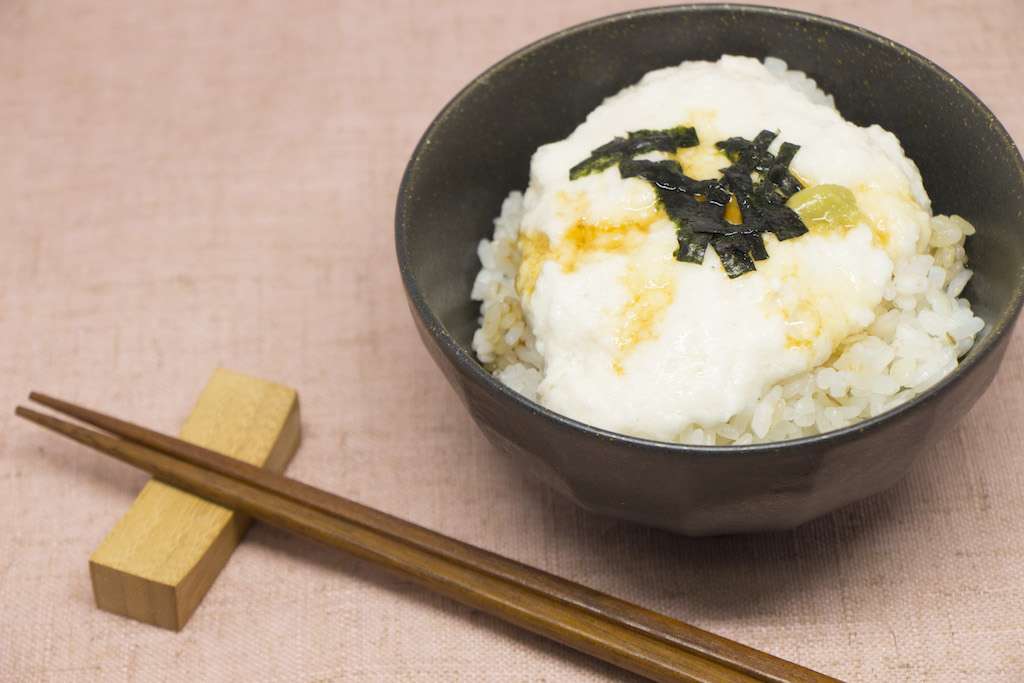
Since it’s very sticky, making tororo (grated yam) is highly recommended.
What’s this called in Japanese?
All of the above three can be called yama-imo. Additionally, icho-imo and tsukune-imo can be called yamato-imo.
Chinese Yam (Naga-imo)
Place of origin
Chinese yam generally refers to the yam native to China.
Types and Producing area
Naga-imo
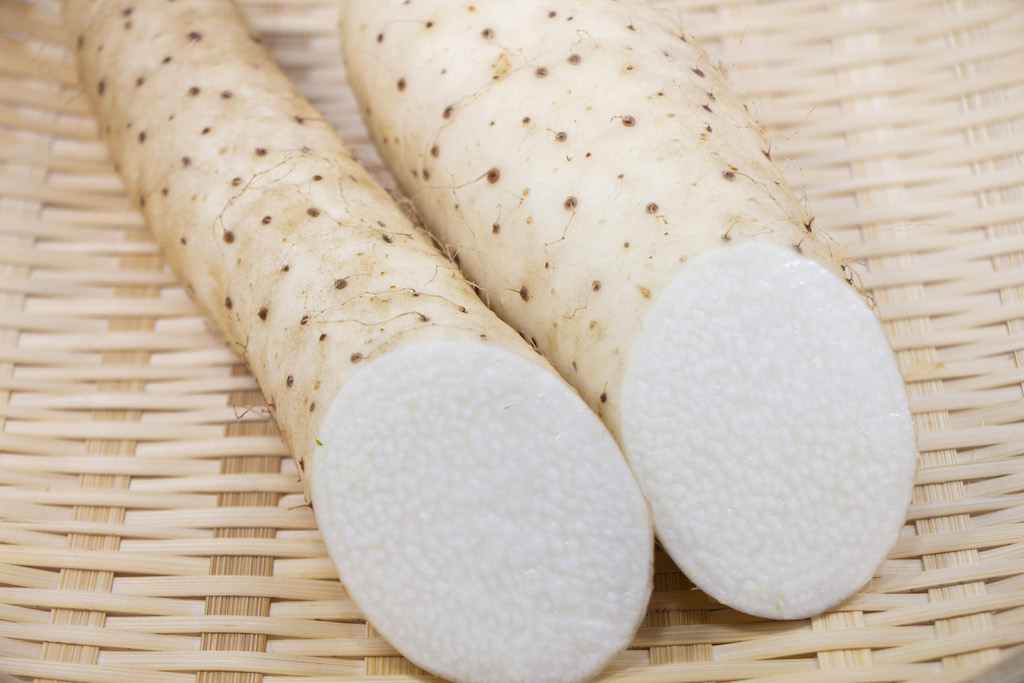
It looks like jinenjo which is a long, narrow strip of yam. Naga-imo has thinner skin than Japanese yam.
About 85% of naga-imo are produced in Hokkaido and Aomori prefecture. Also, I believe it is the largest distribution volume in Japan out of all types of yam.
Stickiness
Chinese yam contains more water and has less stickiness than Japanese yam.
Taste
Generally speaking, Chinese yam has weaker taste than Japanese yam.
Suitable dish
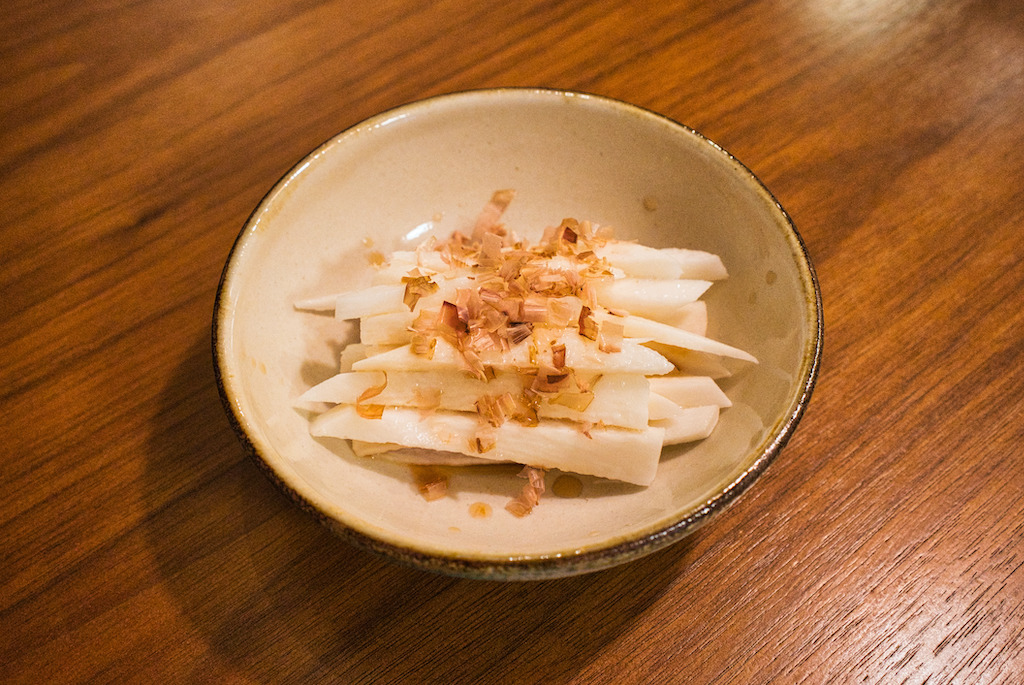
When it’s raw, it has a nice crispy texture. So, it would be great to make pickled dish or salad using shredded Chinese yam. Also, you can enjoy the different texture by cooking it. It becomes soft and flaky when heated.
What’s this called in Japanese?
Chinese yam is normally called naga-imo. You could also call it yama-imo, but no one call it yamato-imo.
Conclusion
If you check this page (below), I think you can understand the relationship between Japanese yam and Chinese yam in more detail.
The 5 Major Types of Japanese Yam

